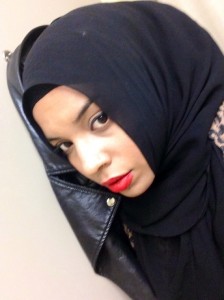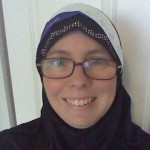He said my name like a ghost.
A whisper from behind.
A quiet wind
hot and hollow.
He said it lazily and slack mouthed,
not parting his full lips wide enough to let every letter through.
He said it without the sigh of relief at the end
that it needed to sound familiar,
like it was not so sweet it could make his eyes water.
I should have known.
I should have known what kind of man he was
when he held his tongue between his teeth and let his eyes off their leash
to roam unapologetically the holy plains of my body.
Eyes that didn’t deserve a single follicle of my hair
let alone the entire garden of my being.
With his hungry eyes and half smile,
he watched,
he looked,
he took something from me.
I should have known then,
that he was dangerous.
But they don’t teach you how to recover from feeling powerless in school, how to spot a wolf in the skin of a man. They don’t give you a step-by-step guide to claiming or reclaiming your voice, a how-to on finding your agency when you are scared and your skin is crawling. So, like the sticky-fingered boys in elementary school, I ignored his disregard for the boundaries of my womanhood, my humanity.
My father used to tell my sister and me never to let anyone touch us in any way that made us feel uncomfortable. He constantly reminded us that our bodies were our own and that no one was allowed to do anything to us or with us without our say so.
In grade six, my body sprouted overnight. I was eleven and in full bloom, full of parts that made me feel like I belonged in the circus, not a sixth grade classroom. The boys noticed, almost before I did.
I remember sitting in the back of class one afternoon as the boys in my class passed back and forth by my desk “sharpening pencils” so that they could take turns copping a feel of my “shiny new boobs.” I remember the heat that took over my face, the churning that grew in my stomach. I was embarrassed and ashamed, but I could not find my voice. I couldn’t say the words that were burning my mouth.
My lack of visible protest furthered my shame. The heat grew into a tingling sensation that swallowed me whole. As the final boy got up, to “sharpen his pencil” I heard one of the boys who had already passed by say, “Her boobs feel weird.” They all laughed in agreement. They laughed as if they were “titty connoisseurs,” as if in their one decade of existence they knew exactly what boobs were supposed to feel like.
It wasn’t their hands, their dirty palms and fingernails black from playing soccer in a muddy field that overthrew me. It was their laughter. I remember it like it was yesterday, I felt like I was going to vomit, but instead of vomiting I opened my mouth and I screamed. I lunged at the speaker, knocked him onto the floor and began to slap and kick and punch. I kept going until my hands hurt and my teacher, one hand around my waist and the other across my chest, pulled me off of him.
I sat in the principal’s office that day with a salty, tear-stained face and a bleeding lip from biting down on it from anger. They asked me over and over why I had attacked him. I couldn’t bring myself to say that it had been because not only did he and his friends take unwanted liberties with my body, but that they then proceeded to make fun of it.
I was suspended for three days while the titty connoisseur got sympathy for having a bloody nose and a chipped front tooth.
We don’t teach girls how to be advocates from themselves. How to respond to abuse. We tell them to tell, but not how to tell, and not always who to tell. We don’t tell them that we will support them through the process and after the process, help them heal, help them return to their lives.
We don’t tell them that victim shame is just another form of victimization.
I knew that those boys touching me was wrong because I felt uncomfortable, and my father had told me that anyone who touched me in a way that felt uncomfortable was wrong. What he forgot to tell me was that it isn’t my fault when someone oversteps my boundaries. What I wear, the colour of my skin, my age, my body are not invitations for abuse. He didn’t tell me that being scared is okay, that not knowing what to do is a normal feeling.
At the age of 18 I stood in a restaurant freezer pinned against a 300-pound door as my boss tried to convince me that touching me was part of my job description. I remember thinking the entire time I knew he was like this, asking myself why I had ignored the signs.
As it was happening, I was shaming myself for not taking the right precautions to avoid the situation. Between breaths of “this is wrong” and “please stop” I recounted every action and inaction that had passed between us, internally flogging myself for making him think that I wanted his hands under my shirt or attempting to undo the button on my jeans.
As women we shame ourselves for everything; what we eat, what we said, what we should have said, what we wore, where we are from, what we did, what we didn’t do, how we love, we shame ourselves for the actions of others and the violence that is perpetuated against us. Most of us were never taught not to.
We are taught to protect our bodies by covering them. But what happens when covering them isn’t enough? What happens when you are 5 or 11 or 18, or 54, what happens when you’re not drunk, or you are drunk, or walking home from school or sitting at home or at a party?
Shame is the heaviest weight one can bear. As women we have backs grown accustomed to burdens that even the universe struggles to hold. To our daughters we must say: come home, you are safe here, you are cherished, we believe you, and you are valued. It is not your fault, we will not tolerate your mistreatment, we will advocate for you, we will not silence you or shame you, you are more than he has made you, more than they have made you.
To my sisters who have borne the weight of shame and burden, I am here to tell you that you are more than your experience. It was not your fault, your body is not an invitation. If you were too scared to say “no,” silence is still not consent. You weren’t asking for it. If you decided against it halfway through, you were not asking for it. If you were manipulated or deceived, you were not asking for it.
I believe you,
I value you,
I love you.
—
Read more from Key on our site, here!
Key Ballah is a Toronto-based writer and Hip Hop enthusiast. She is the author of the poetry collection, ‘Preparing My Daughter For Rain‘, she melts faith, love and her experiences of being a woman of colour navigating the western world in her writing. She believes in empowering the brown girl to reclaim her selves and her body, by connecting and healing collectively, over borders, oceans and time zones, through story telling and poetry. She is currently working on a new project due out this fall.














